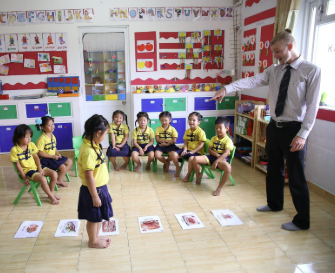Language learning becomes more enjoyable and effective when it feels like a game. Creating your own language challenges can keep you motivated, help you stay consistent, and make the learning process more interactive. Here’s how to design fun and meaningful challenges that boost your skills and keep you excited to learn.
1. Set a Theme for Your Challenge
Pick a fun theme to guide your learning. It could be “Food Week,” where you learn food-related vocabulary, or “Travel Talk,” where you focus on common phrases used during trips. Themed challenges give your practice purpose and variety.
2. Create Daily or Weekly Goals
Break your challenge into small, manageable steps. For example, learn five new words each day, write a short paragraph every evening, or listen to a podcast three times a week. These bite-sized goals keep your challenge realistic and consistent.
3. Use a Variety of Activities
Incorporate different learning styles to keep things fresh. You might include:
- Speaking: Record yourself describing your day.
- Listening: Watch a short video in your target language.
- Reading: Read a short article or comic strip.
- Writing: Create a dialogue or diary entry.
4. Make It Social
Invite friends, classmates, or language partners to join your challenge. Sharing your progress and encouraging others adds motivation and accountability. You can even create a simple online group to exchange tips and celebrate milestones.
5. Track and Reward Progress
Use a checklist, calendar, or journal to track your achievements. Set small rewards for yourself—like a favorite treat or a break activity—when you reach a goal. Celebrating progress builds confidence and keeps you going.
6. Customize for Your Level
Beginner learners can focus on basic vocabulary and phrases, while advanced learners might tackle grammar practice or storytelling. Tailor the difficulty to your current skill level to avoid frustration and encourage success.
7. Add a Creative Twist
Try challenges like “Describe 10 random photos,” “Invent a new character and write their story,” or “Translate a song you like.” These creative exercises make language learning feel more like play than work.
Conclusion
Creating your own language challenges is a great way to stay engaged and have fun while learning. With a mix of structure, creativity, and personal goals, these challenges turn everyday practice into exciting mini-adventures. Try building your own today and watch your language skills grow with each step!














